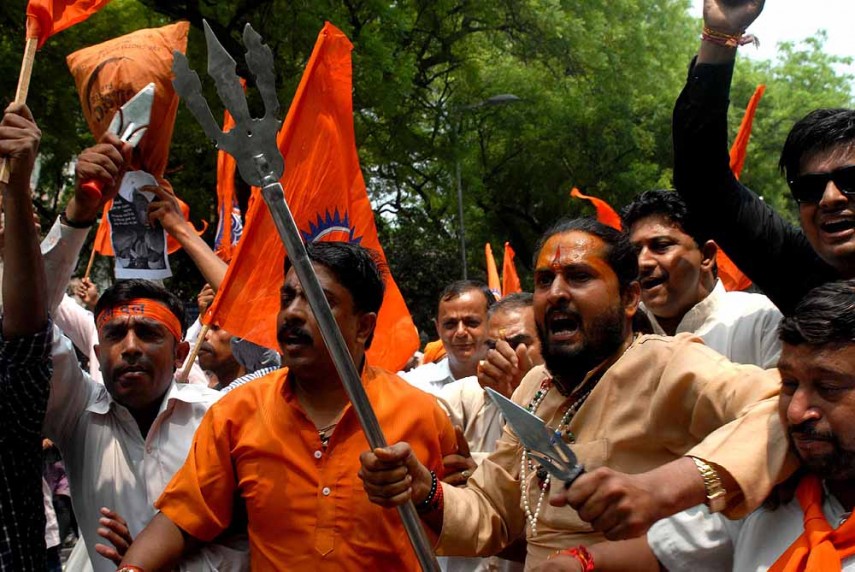
In contemporary India, the intersection of religious festivities with the broader societal landscape often brings to the fore complex dynamics of communal harmony, security concerns, and the protection of minority rights. Against this backdrop, the Ram Navami procession in Hyderabad stands as a significant event, reflective of the rich tapestry of religious observance that characterizes the nation. However, recent developments surrounding the procession have ignited debates concerning the extent to which security measures can inadvertently impinge upon the rights and sentiments of minority communities, particularly Muslims.
At the core of these debates lies the constitutional commitment to secularism, enshrined as a fundamental tenet in India’s democratic framework. Secularism, as articulated in the Constitution, embodies the principle of equal treatment and respect for all religions, ensuring that the state remains impartial and does not favor any particular faith. However, the practical application of secularism has often been called into question, especially in instances where religious festivities intersect with public space and governance.
The decision to cover mosques and dargahs along the route of the Ram Navami procession in Hyderabad has sparked widespread concern. While purportedly aimed at maintaining peace and order, such actions have been perceived as symbolic of the marginalization and erasure of Muslim identity in the public sphere. By concealing these religious symbols, authorities risk sending a message of exclusion and alienation, undermining the ethos of secularism that underpins India’s pluralistic society.
Moreover, the demolition of religious structures, whether mosques or temples, under the pretext of security measures, raises serious ethical and legal questions. Places of worship hold immense significance for believers, serving as sacred spaces for prayer, reflection, and community engagement. The wanton destruction of these structures not only violates the religious freedoms guaranteed by the Constitution but also erodes the social fabric of tolerance and coexistence that is essential for a thriving democracy.
In addition to physical manifestations of marginalization, the heavy deployment of security forces during religious processions warrants critical examination. While ensuring public safety is undoubtedly a priority, the militarization of public spaces can have chilling effects on civil liberties and freedom of expression. For minority communities, already vulnerable to discrimination and surveillance, the presence of armed personnel may exacerbate feelings of insecurity and apprehension, further alienating them from the mainstream narrative.
The collaborative approach between law enforcement agencies and community organizers, while laudable in theory, must prioritize inclusivity and transparency. Meaningful engagement with representatives from diverse religious backgrounds can foster mutual understanding and trust, mitigating the risk of social discord and conflict. Excluding Muslim leaders from discussions surrounding the Ram Navami procession not only undermines the spirit of secularism but also perpetuates a narrative of exclusion and division.
Furthermore, the role of political leadership in shaping the narrative surrounding religious events cannot be understated. Individuals in positions of authority, such as Raja Singh, have a moral obligation to promote interfaith harmony and respect for diversity. Public statements that inflame religious tensions or denigrate minority communities not only betray the principles of secular governance but also undermine the social cohesion necessary for a thriving democracy.
In conclusion, the events surrounding the Ram Navami procession in Hyderabad serve as a sobering reminder of the ongoing challenges in reconciling religious observance with secular governance. While security concerns must be addressed, they should not come at the expense of minority rights or communal harmony. Upholding secular values requires a nuanced approach that respects the religious diversity inherent in Indian society while safeguarding the rights and dignity of all citizens. By fostering inclusive dialogue, promoting mutual respect, and upholding the principles of equality and justice, India can aspire to realize the vision of a truly secular and pluralistic democracy.
